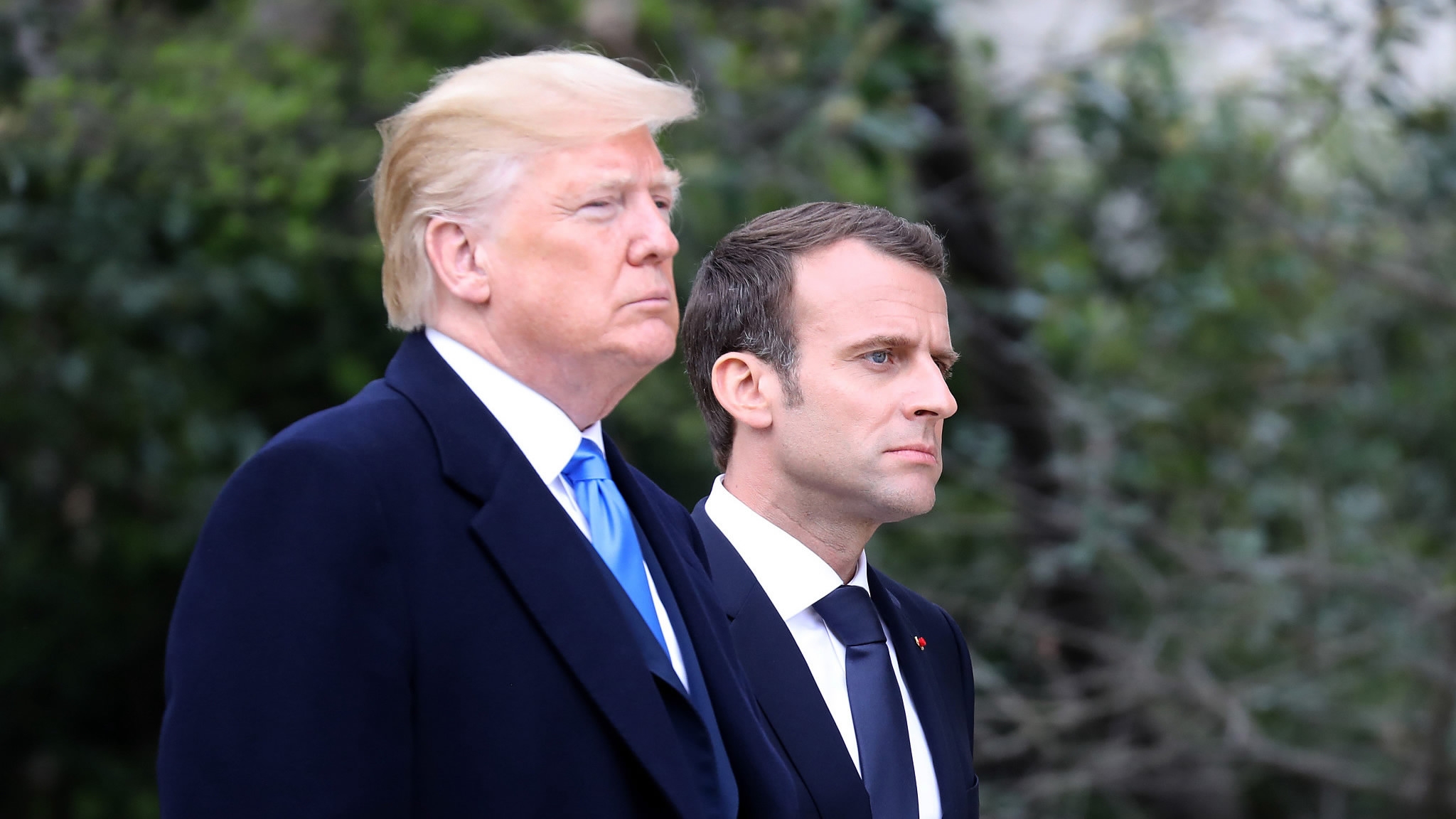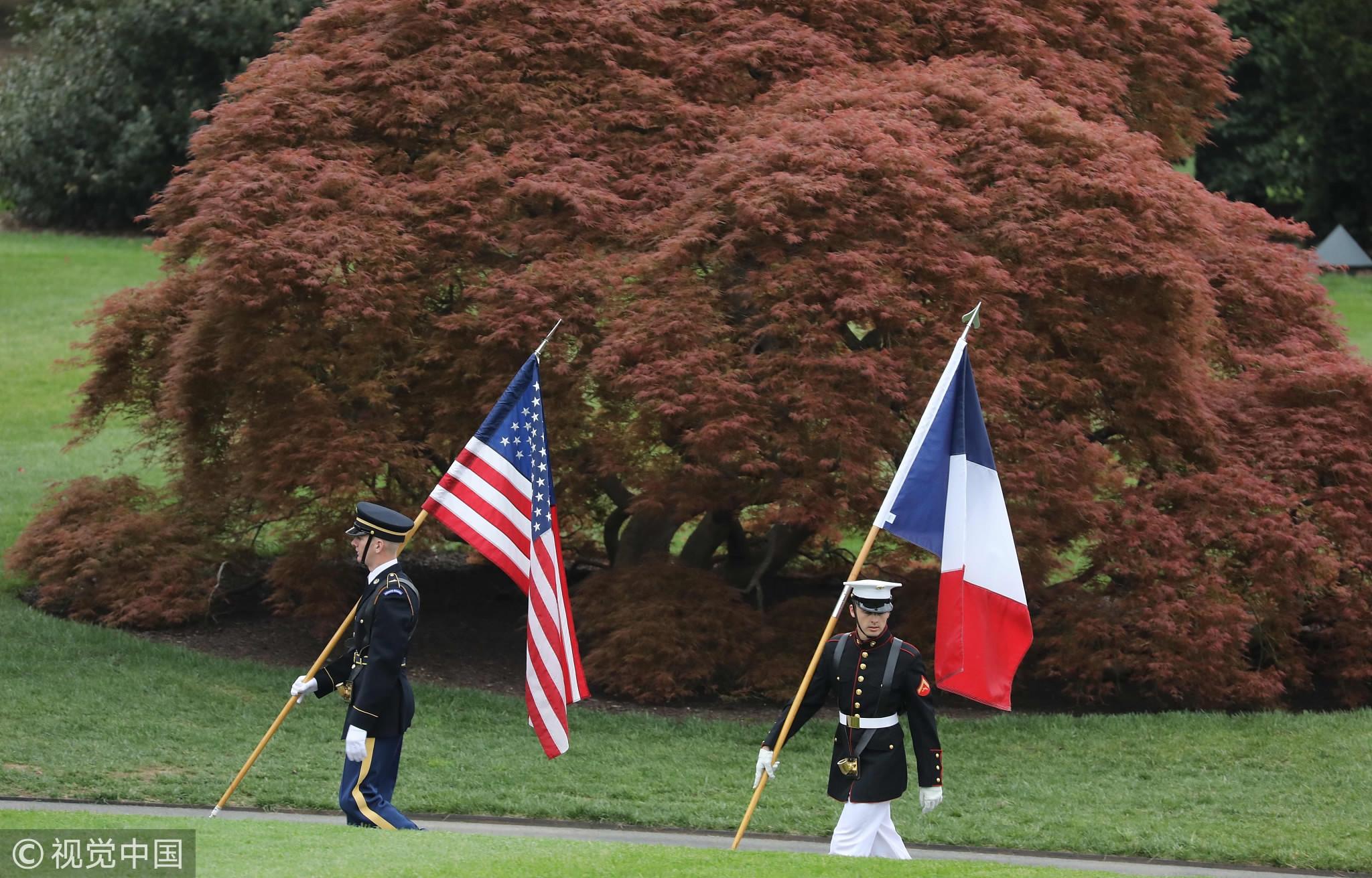
Opinions
23:03, 24-Apr-2018
Analysis: Why Macron’s US visit is to press Trump on Iran nuclear deal?
CGTN
03:34

French President Emmanuel Macron arrived in the United States on Monday for a three-day state visit to discuss the fate of the Iran nuclear deal -- one of Macron’s issues top-listed the agenda.
Dr. Remi Piet, a Research Associate at the European Union Center of Florida International University, told CGTN that Macron’s US visit aims to press Trump on Iran's nuclear development and speak out Europe’s concern.
Earlier on Sunday, Macron noted there was no "Plan B" for keeping a lid on Tehran's nuclear ambitions. But it's commonly believed that it's not possible to convince Trump to accept the deal.

French President Emmanuel Macron waves as he stands on the Truman Balcony with U.S. President Donald Trump during the official arrival ceremony for the Macrons on the South Lawn of the White House in Washington, US, April 24, 2018. /VCG Photo
French President Emmanuel Macron waves as he stands on the Truman Balcony with U.S. President Donald Trump during the official arrival ceremony for the Macrons on the South Lawn of the White House in Washington, US, April 24, 2018. /VCG Photo
“What can Macron and Angela Merkel who is going to visit the US shortly do to protect the interests of the European countries given the fact that immediately after the deal was signed, dozens of European countries began to pour investment into Iran and the possible nuclear arms race in the Middle East sparked by this would actually cast a huge shadow over European security?” asked CGTN.
Dr. Piet answered if it’s one leader that was able to convince Trump, it might very well be Macron due to his strong relationship with Trump with a respectful invitation for Trump in Paris six months ago.
“As a result of this, he may be the only one that now also has the political power in Europe," he added. "We have the problem that Merkel and Theresa May are facing in their own countries to have a voice and a strong influence on Donald trump.”
“There are ways out and ways to compromise on this, obviously there was a promise from Trump to pull away from the agreement during his political campaign, but he has already abandoned some of his promises in the past. That wouldn't be the first one," Dr. Piet stated.
“You can maybe pull forward by just saying that he has demanded for more inspection from the United Nations or they actually have negotiated a longer deal because right now the deal is only by 2025.”
“So the issue might be to try to negotiate a stronger deal after 2025. So there are some ways out of collaboration between Macron and Trump on that one.” Dr. Piet noted.

Honor guards prepare for the state welcome of French President Emmanuel Macron at the White House in Washington, DC, on April 24, 2018. /VCG Photo
Honor guards prepare for the state welcome of French President Emmanuel Macron at the White House in Washington, DC, on April 24, 2018. /VCG Photo
“The only way out of issues like this is finding political negotiations and sitting down on table to actually have an idea of working together towards a peaceful negotiation on this. You just do not want to have a nuclear proliferation in the Persian Gulf right now, of course.” Dr. Piet said.
After the US visit and phone call with Putin, Macron is heading Russia in May. Is he trying to strike a balance between the US and Russia?
Dr. Piet noted Macron was trying to bridge between the US and Russia, and “he actually invited Trump to be on the fourth of July in Paris and just afterwards he invited Putin to come to castle of Versailles”.
“So he already has been familiar with this kind of diplomatic sequence between the US and Russia. On both cases he was able to get respected by Trump and Putin.”
According to Piet, Macron is trying to “have a strong European voice that could be bridging between the American and the Russian”.
“This issue of re-negotiating or actually maintaining and protecting an agreement on Iran that has gathered the entire international community apart from the US, currently is maybe the right vector of collaboration in putting Macron on the international scene as a deal maker.” Dr. Piet noted.

SITEMAP
Copyright © 2018 CGTN. Beijing ICP prepared NO.16065310-3
Copyright © 2018 CGTN. Beijing ICP prepared NO.16065310-3